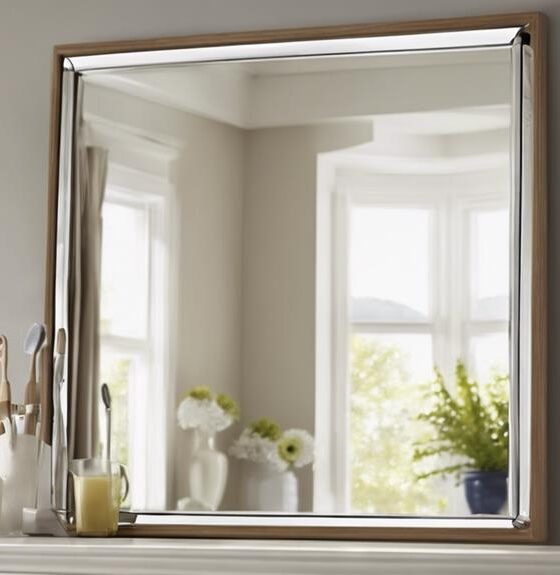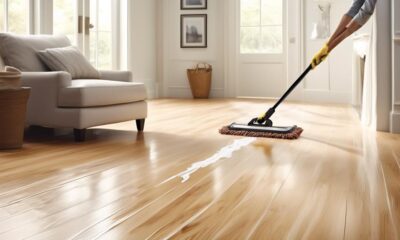Appliances
How Do I Change My Remote Ceiling Fan to Manual?
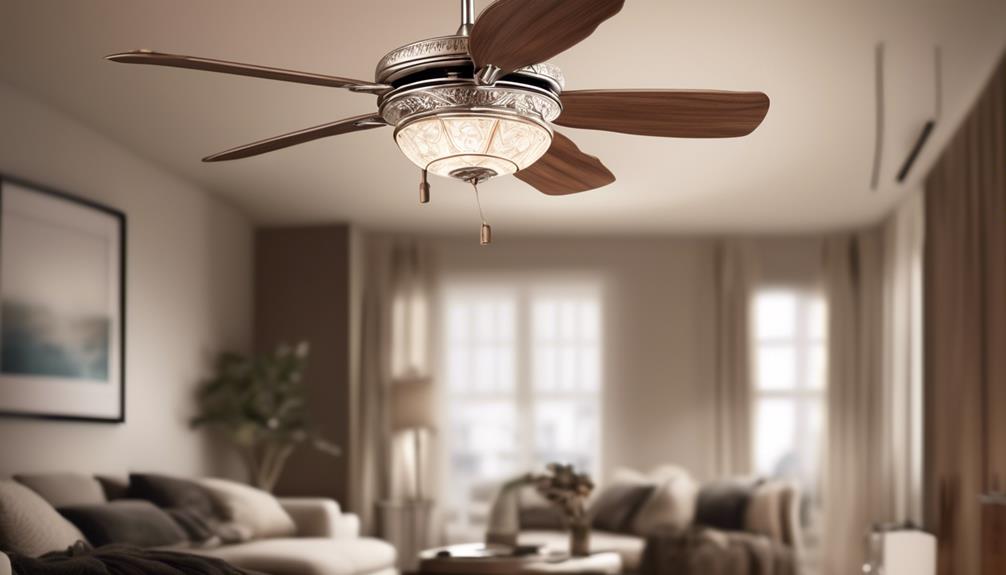
Picture this scenario: you’re relaxing in the comfort of your living room, basking in a serene night, when out of the blue, your remote-operated ceiling fan begins to rebel. It accelerates its spin, increasingly fast, making you feel as if you’ve been caught in a whirlwind.
Frustrating, right? Well, fear not, because there is a solution. In this guide, we will walk you through the process of changing your remote ceiling fan to manual control. By following the steps outlined here, you will regain control over your fan's speed and enjoy a more peaceful and comfortable living space.
So, let's get started and bring back the serenity to your home.
Key Takeaways
- Loss of signal connectivity and weak batteries can be frustrating issues with remote control fans.
- Manual control offers simplicity, reliability, and allows for precise adjustments and customization of speed and airflow.
- The process of disconnecting the remote control receiver and installing a pull chain or wall control involves turning off the power, removing the remote control cover, disconnecting and reconnecting wires, and testing the fan's functionality.
- Troubleshooting tips for manual control conversion include ensuring power is turned off, following manufacturer's instructions, securely connecting wires, testing functionality, and seeking professional help if needed.
Reasons to Switch to Manual Control
There are several compelling reasons to switch your remote-controlled ceiling fan to manual control.
While remote control may seem convenient, it often comes with its fair share of problems. One of the most common issues with remote fans is the loss of signal connectivity. This can be frustrating, especially when you're in the middle of a hot summer day and desperately need the fan to cool you down. With manual control, you don't have to worry about signal interference or weak batteries affecting the performance of your fan.
Another benefit of manual control is the simplicity and reliability it offers. Remote-controlled ceiling fans require batteries, and if they run out, you're left without a functioning fan. Manual control eliminates this problem entirely, ensuring that your fan will always be ready to provide the cool breeze you need.
Furthermore, manual control allows for precise adjustments. With a remote-controlled fan, you're limited to the preset speed settings programmed into the remote. Manual control gives you the freedom to fine-tune the fan's speed and airflow to suit your specific preferences.
Tools and Supplies Needed
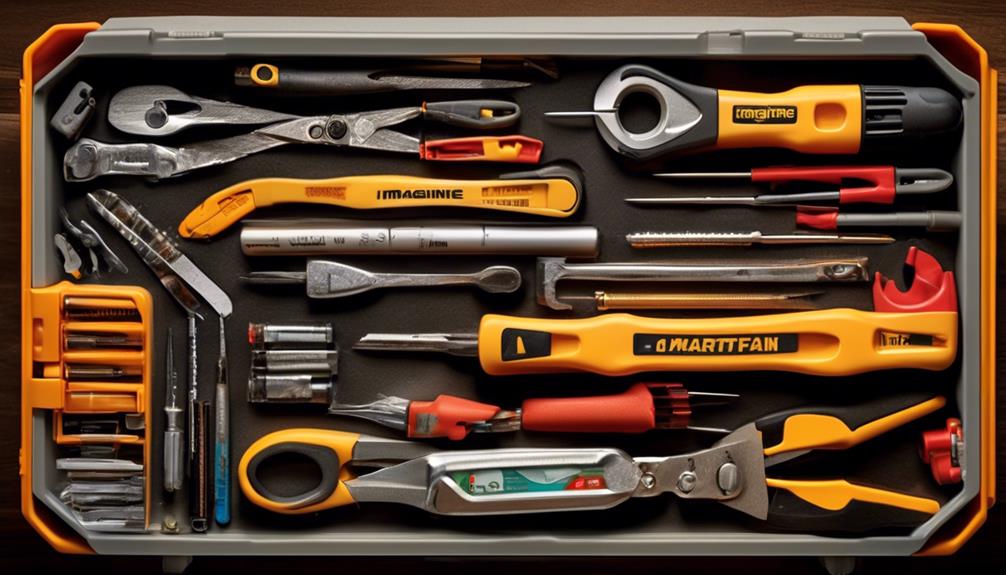
To successfully change a remote-controlled ceiling fan to manual control, you'll need a few specific tools and supplies. Before you begin, it's important to take some safety precautions. Make sure to turn off the power to the fan at the circuit breaker to avoid any electrical shock. Additionally, use a sturdy ladder or step stool to reach the fan safely.
Now, let's talk about the tools and supplies you'll need.
Firstly, you'll need a screwdriver, preferably a Phillips head or a flathead, depending on the type of screws used to secure the fan's housing. This will allow you to remove the housing and access the fan's wiring.
Next, you'll need wire nuts and electrical tape. These will be used to secure and insulate the exposed wires when you remove the receiver that controls the remote functionality.
Lastly, you'll need a pull chain switch kit. This kit includes a pull chain switch and a replacement pull chain. This switch will replace the receiver and allow you to control the fan manually.
Step-by-Step Guide to Disconnecting the Remote Control Receiver
To disconnect the remote control receiver of your ceiling fan, you'll need to follow these step-by-step instructions. Regular maintenance is important for ceiling fans to ensure optimal performance and longevity.
However, if you prefer to switch from remote control to manual operation, here's how you can do it.
- Turn off the power: Locate the circuit breaker or the wall switch that controls the power supply to your ceiling fan. Switch it off to avoid any electrical mishaps during the disconnection process.
- Remove the remote control cover: Take off the cover on the remote control receiver by unscrewing the screws holding it in place. Set the cover aside carefully.
- Disconnect the wires: Inside the receiver, you'll find wires connected to the fan. Use a voltage tester to ensure there's no electricity running through them. Once confirmed, disconnect the wires attached to the receiver.
- Reconnect the wires: After disconnecting the receiver, reconnect the wires directly to the fan. Make sure to match the correct wire colors together and secure them with wire nuts.
- Test the fan: Once the wires are securely connected, restore power to the fan and test its functionality by turning it on manually.
How to Install a Pull Chain or Wall Control
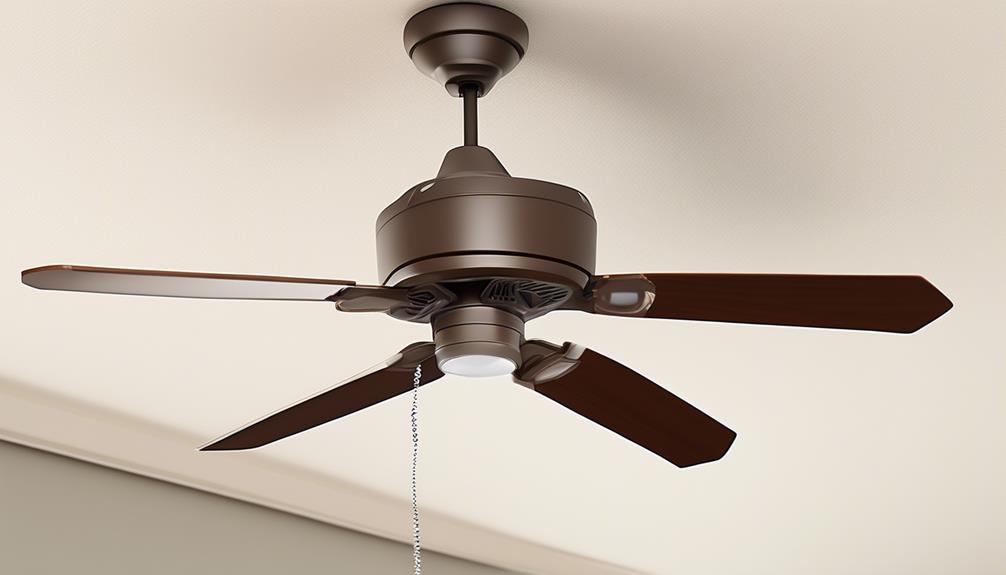
Installing a pull chain or wall control for your ceiling fan is a straightforward process that allows you to easily control the fan's speed and lighting options. This gives you the convenience and flexibility to adjust the fan settings without having to rely on a remote control.
Here are four key steps to guide you through the installation process:
- Choose the type of control: Determine whether you want a pull chain or a wall control for your ceiling fan. Both options offer their own benefits. A pull chain is simple and cost-effective, while a wall control provides a more convenient and accessible way to adjust the fan settings.
- Turn off the power: Before beginning the installation, ensure that the power to the ceiling fan is turned off. This is crucial for your safety and to avoid any electrical mishaps.
- Remove the existing remote control: If your ceiling fan currently has a remote control system, you'll need to disconnect it. Follow the manufacturer's instructions to properly remove the remote control receiver.
- Install the new control: Depending on whether you chose a pull chain or wall control, follow the instructions provided with the control unit to install it correctly. Make sure to connect the wires securely and test the functionality of the control after installation.
Troubleshooting Tips for Manual Control Conversion
Now that you have successfully installed a pull chain or wall control for your ceiling fan, let's explore some troubleshooting tips to ensure a smooth transition to manual control.
While converting your ceiling fan from remote control to manual control is a fairly straightforward process, there may be some common problems that you encounter along the way. One common problem is that the fan may not respond to the pull chain or wall control.
If this happens, the first step is to check the wiring connections to ensure they're secure. Loose connections can prevent the manual controls from functioning properly.
Another common issue is the fan running at a slower speed than desired. In this case, check the pull chain or wall control settings to ensure they're set to the highest speed. If the fan still runs slower than expected, there may be an issue with the motor or the wiring.
Troubleshooting techniques for these issues include checking the wiring connections, inspecting the motor for any signs of damage, and contacting a professional if necessary.
Can I Change My Ceiling Fan from Remote Control to Manual Control?
Yes, you can change your ceiling fan from remote control to manual control by disconnecting the connecting remote ceiling fan receiver and installing a traditional pull chain switch. This can be done by following the instructions provided in the fan’s manual or by consulting a professional electrician.
Frequently Asked Questions
Can I Still Use the Remote Control After Switching to Manual Control?
You can still use the remote control after switching to manual control. The benefit of manual control over the remote control is having direct control over the fan without relying on the remote.
Are There Any Safety Precautions I Should Take When Disconnecting the Remote Control Receiver?
When disconnecting the remote control receiver, it is crucial to prioritize safety precautions. Ensure the power is off, use insulated tools, and follow the manufacturer's instructions precisely. Taking these steps will help prevent any accidents or electrical hazards.
Will Switching to Manual Control Affect the Warranty of My Ceiling Fan?
Switching to manual control does not affect the warranty of your ceiling fan. However, it may impact the efficiency. Manual control requires physical interaction, whereas remote control offers ease of use from a distance.
How Long Does It Usually Take to Switch From Remote Control to Manual Control?
To switch from remote control to manual control, you need to disconnect the remote control receiver and follow a few steps. The process usually takes around 20-30 minutes, depending on your skill level and the specific fan model.
Can I Switch Back to Remote Control if I Decide I Prefer It Over Manual Control?
If you decide you prefer the convenience of remote control over manual, you can easily switch back. However, keep in mind that manual control offers advantages like precise speed adjustments and avoiding reliance on batteries.
Conclusion
For a flawless transition from remote to manual control, follow the step-by-step guide provided.
Ensure you have the necessary tools and supplies on hand.
Disconnecting the remote control receiver is crucial, followed by the installation of a pull chain or wall control.
Troubleshooting tips are also available for any hiccups along the way.
Embrace the freedom of manual control and bid farewell to the complexities of remote operation.
- About the Author
- Latest Posts
Introducing Ron, the home decor aficionado at ByRetreat, whose passion for creating beautiful and inviting spaces is at the heart of his work. With his deep knowledge of home decor and his innate sense of style, Ron brings a wealth of expertise and a keen eye for detail to the ByRetreat team.
Ron’s love for home decor goes beyond aesthetics; he understands that our surroundings play a significant role in our overall well-being and productivity. With this in mind, Ron is dedicated to transforming remote workspaces into havens of comfort, functionality, and beauty.
Appliances
3 Essential Tips for RV-Friendly Portable Washers

- Pros and cons of using eco friendly laundry detergent in a portable washer.
- Tips for preventing detergent residue buildup in a portable washer
Are you exhausted from constantly looking for laundromats during your RV trips? We get it. That’s why we’re here to provide three key tips for RV-friendly portable washing machines.
While you might be thinking, ‘Do I really need a portable washer?’ trust us, having one on your RV can be a game-changer. In this guide, we’ll show you how to choose the right size washer that fits your RV’s limited space, understand the power and water requirements to ensure smooth operation, and provide you with maintenance and cleaning tips to keep your washer running efficiently.
So, let’s dive in and master the art of laundry on the road!
Key Takeaways
- Consider the laundry capacity needed for your RV.
- Look for compact and lightweight options with space-saving features.
- Choose a portable washer with high energy efficiency and water conservation features.
- Regularly maintain and clean your portable washer using recommended cleaning products.
Choosing the Right Size
One of the first considerations when selecting a portable washer for our RV is determining the appropriate size. Portable washer features and space-saving options play a crucial role in making this decision. When it comes to size, it’s important to find a washer that fits well within the limited space of an RV, while still providing enough capacity to meet our laundry needs.
To begin with, portable washers come in a range of sizes, typically measured in pounds of laundry capacity. It’s essential to consider the amount of laundry we anticipate doing on a regular basis. While a smaller capacity may be suitable for individuals or couples, larger families might require a washer with a higher capacity to accommodate their laundry demands.
Additionally, it’s important to consider the physical dimensions of the washer. RVs have limited space, so opting for a compact and lightweight washer can help maximize the available room. Some portable washers are designed with space-saving features such as folding handles, detachable components, or even stackable options that can fit neatly into tight spaces.
Understanding Power and Water Requirements
When considering the power and water requirements for our RV-friendly portable washer, we need to understand the necessary resources for optimal performance.
Energy efficiency is an important factor to consider when choosing a portable washer for your RV. Look for models that have a high Energy Star rating, as this indicates that they consume less energy and can help you save on your electricity bills.
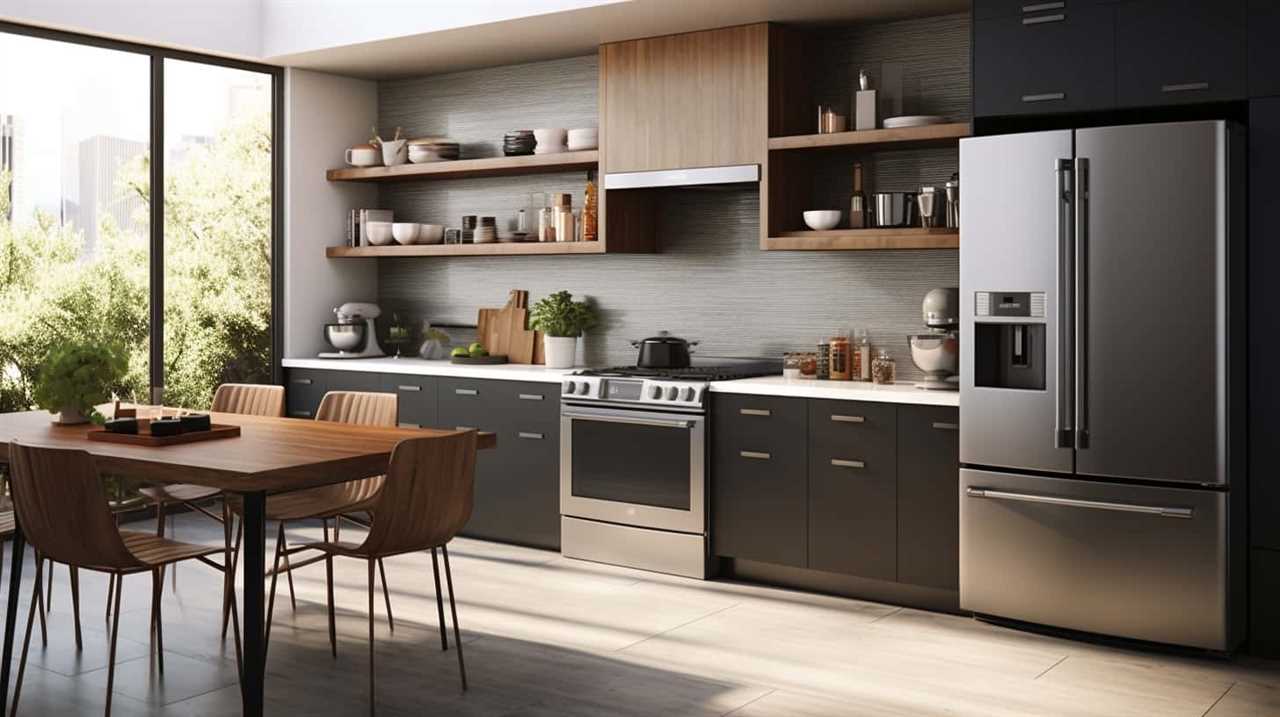
Additionally, portable washer features such as load sensing technology and adjustable water levels can help you conserve water. These features ensure that the washer only uses the amount of water necessary to clean your laundry, which is particularly crucial when you have limited water supply in your RV.
It’s also important to check the power requirements of the portable washer. Make sure that the washer is compatible with the power source available in your RV, whether it’s a standard 120-volt outlet or a 12-volt DC power source.
Understanding the power and water requirements of your RV-friendly portable washer won’t only help you achieve optimal performance but also contribute to energy and water conservation.
Maintenance and Cleaning Tips
Let’s talk about how to properly maintain and clean your RV-friendly portable washer. Taking care of your portable washer is essential to ensure its longevity and optimal performance. Regular maintenance and cleaning will help prevent any potential issues and keep your machine running smoothly. Here are some common troubleshooting tips and recommended cleaning products to keep in mind:
| Common Troubleshooting | Recommended Cleaning Products |
|---|---|
| Leaking water | Vinegar and water mixture |
| Excessive noise | Mild detergent |
| Drum not spinning | Baking soda |
| Error codes | Citric acid |
If you encounter a problem such as leaking water, try using a mixture of vinegar and water to clean the machine’s seals and hoses. For excessive noise, use a mild detergent to clean the drum and remove any debris that may be causing the noise. If the drum is not spinning, try using baking soda to remove any buildup that may be hindering its movement. Lastly, if you receive error codes, using citric acid in the detergent compartment can help clean the sensors and resolve the issue.
Remember to always refer to your portable washer’s manual for specific maintenance instructions and troubleshooting tips. By following these guidelines and using the recommended cleaning products, you can keep your RV-friendly portable washer in great condition and enjoy clean laundry on your travels.
Frequently Asked Questions
How Long Does It Typically Take to Wash a Full Load of Laundry Using a Portable Washer?
Typically, it takes around 30 to 45 minutes to wash a full load of laundry using a portable washer.
However, it’s important to consider the capacity limitations of these machines. Most portable washers have a smaller capacity compared to traditional washers, so it may take longer if you have a larger load.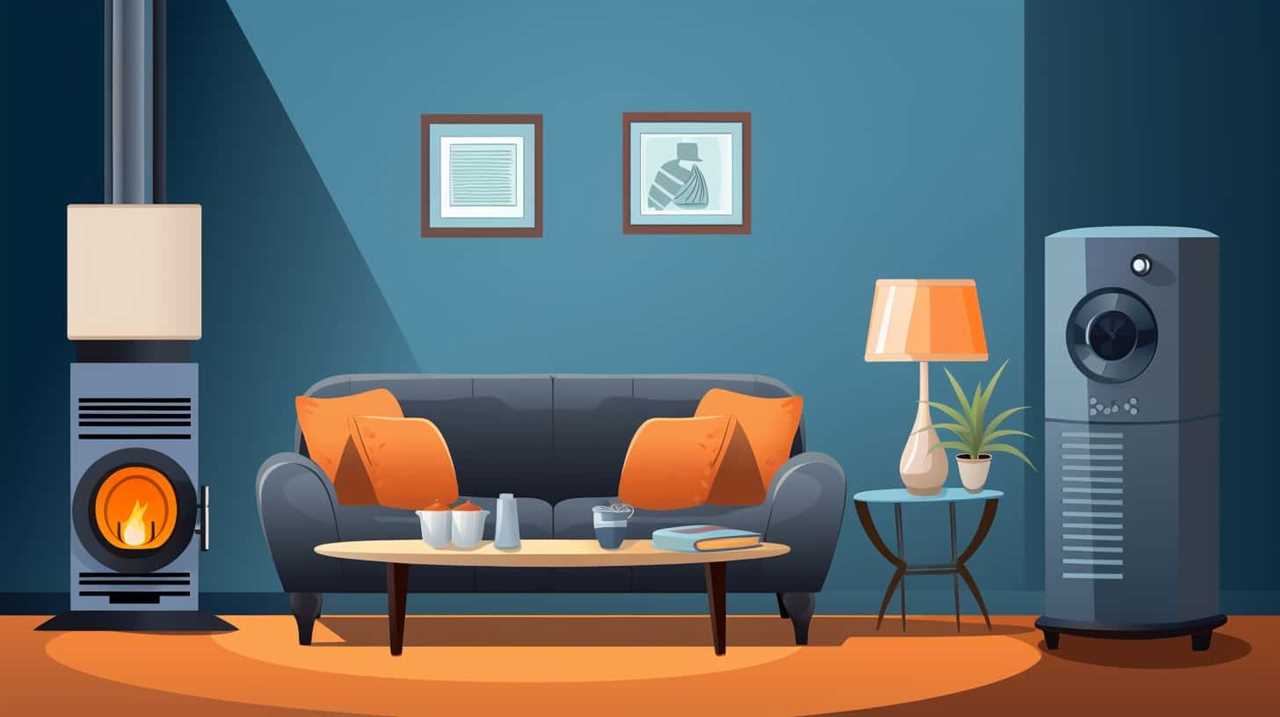
It’s always a good idea to follow the manufacturer’s instructions and not overload the machine to ensure efficient and effective washing.
Can I Use Regular Laundry Detergent in a Portable Washer, or Do I Need to Use a Specific Type?
Yes, you can use regular laundry detergent in a portable washer. However, there are some pros and cons to consider.
Using eco-friendly laundry detergent in a portable washer is a great option for those who want to reduce their environmental footprint. It can be gentler on your clothes and safer for the environment.
However, some eco-friendly detergents may not be as effective at removing tough stains. To prevent detergent residue buildup, make sure to use the recommended amount of detergent and run an extra rinse cycle if needed.
Is It Safe to Leave a Portable Washer Unattended While It’s Running?
Safety precautions should be taken when using a portable washer unattended. There are potential risks involved, such as water leakage or electrical malfunctions. It’s important to follow the manufacturer’s instructions and guidelines for safe operation.
Some tips to minimize risks include ensuring a stable surface, avoiding overloading the machine, and regularly checking for any signs of damage.
It’s always best to err on the side of caution when it comes to leaving a portable washer running without supervision.
Can I Wash Delicate Fabrics, Such as Silk or Lace, in a Portable Washer?
When it comes to washing delicate fabrics like silk or lace in a portable washer, there are a few things to keep in mind.
Firstly, check the manufacturer’s instructions to ensure that your specific model is suitable for these types of fabrics.
Secondly, use a gentle cycle and cold water to minimize any potential damage.
Lastly, consider placing delicate items in a mesh laundry bag for added protection.
With these precautions, you can safely wash your delicate fabrics in an RV-friendly portable washer.
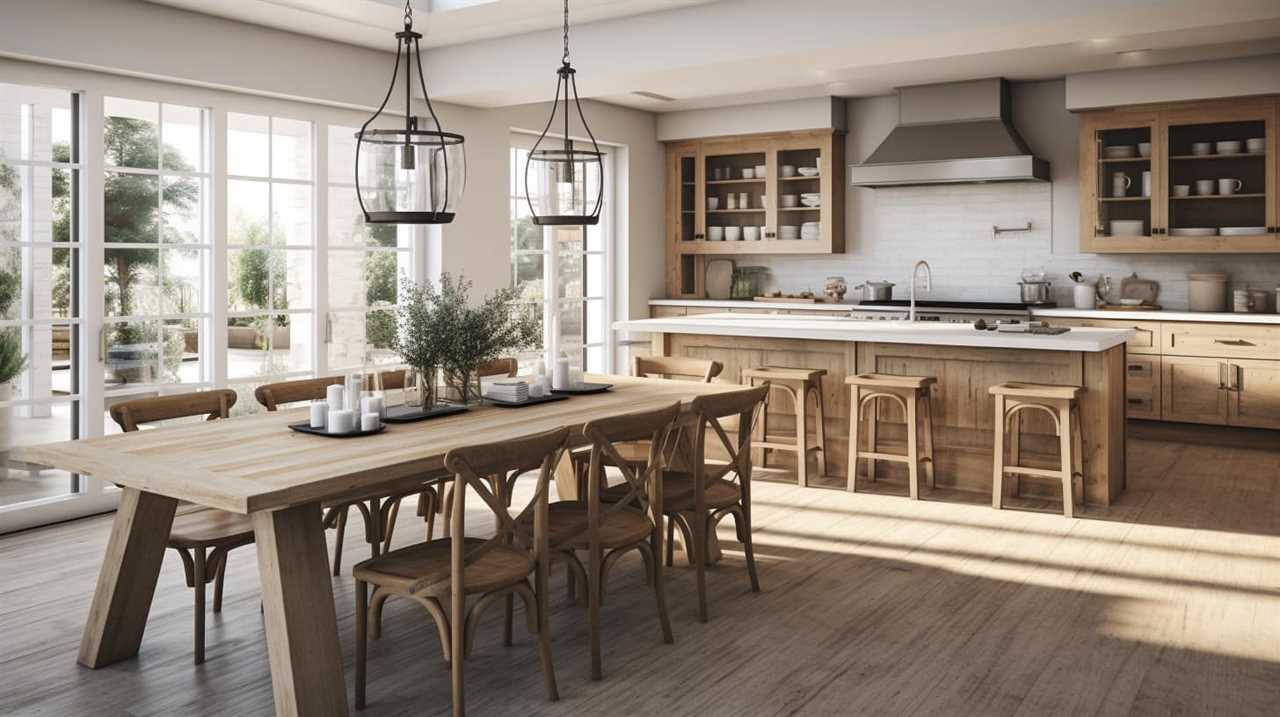
How Noisy Are Portable Washers When in Operation?
When it comes to the noise level of portable washers, it’s important to consider their energy efficiency as well. These machines are designed to be compact and efficient, so they tend to operate quietly. While they do make some noise during operation, it’s typically minimal and shouldn’t disturb your RV neighbors or disrupt your peaceful campsite.
Plus, their energy efficiency means you can enjoy clean clothes without draining your RV’s power supply.
Conclusion
In conclusion, choosing the right size portable washer for your RV, understanding power and water requirements, and following maintenance and cleaning tips are essential for a smooth laundry experience on the road.
By coincidence, we stumbled upon a fellow traveler at a campsite who’d just purchased a portable washer based on our article. They were thrilled with the convenience and efficiency it provided.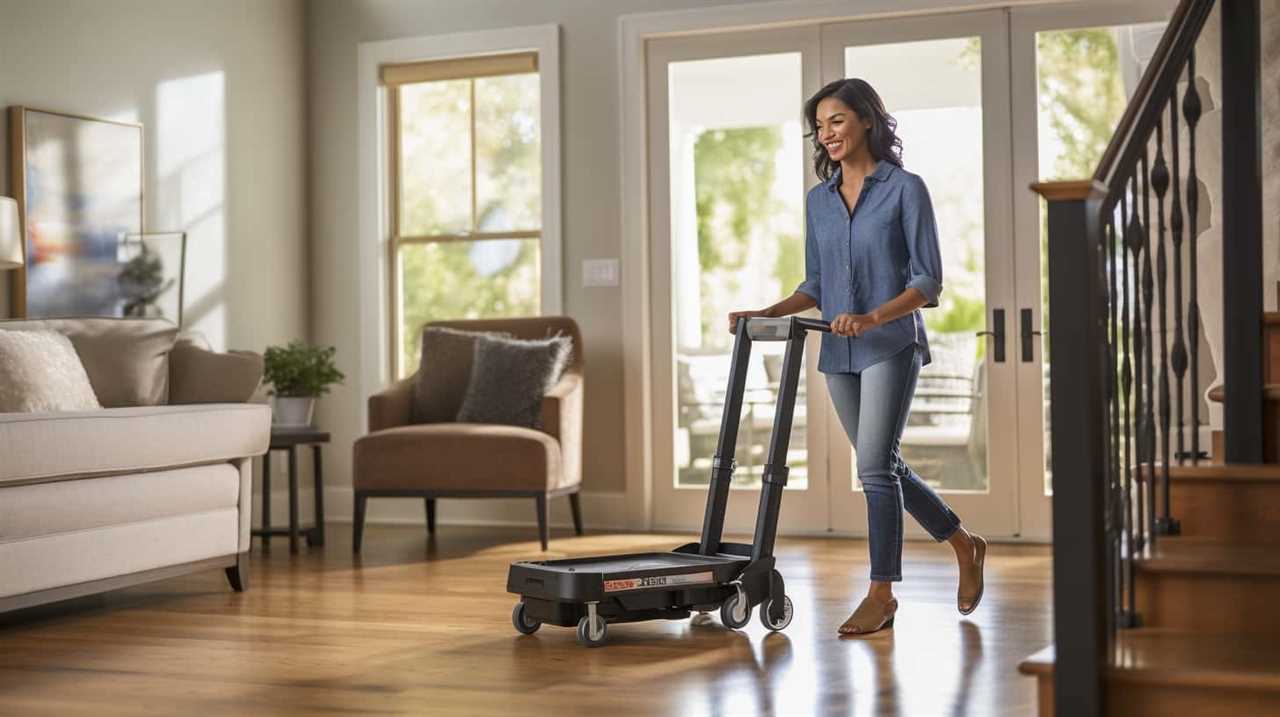
So, take these tips into consideration and enjoy clean clothes wherever your adventures take you!
- About the Author
- Latest Posts
Introducing Charles, the Editor in Chief at ByRetreat, whose passion for interior design and editorial excellence elevates every remote workspace to new heights. With his keen eye for detail, impeccable taste, and expertise in design, Charles brings a wealth of knowledge and creativity to the ByRetreat team.
As the Editor in Chief of a renowned lifestyle blog, Charles has honed his skills in curating captivating content and staying up-to-date with the latest trends in interior design. His deep understanding of aesthetics and the power of storytelling through design enables him to create remote workspaces that are not only visually stunning but also rich in personality and meaning.
Appliances
4 Smart Tips for Extended Commercial Appliance Warranties
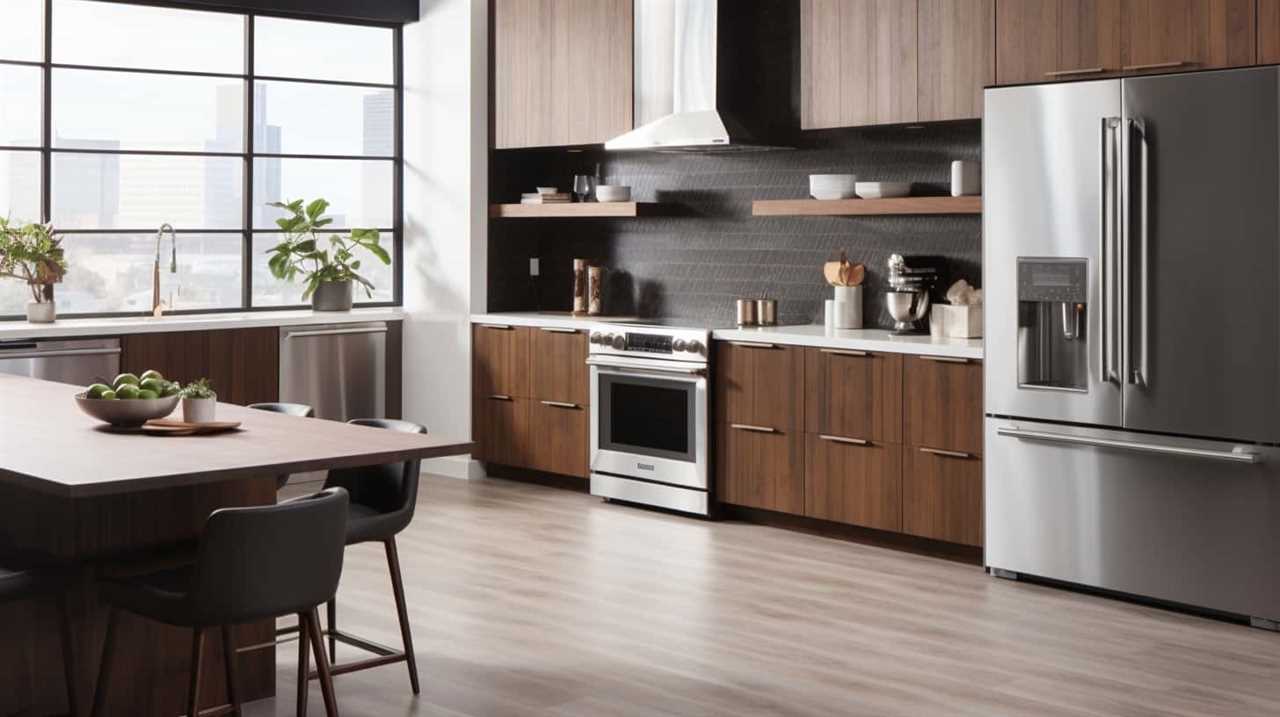
Did you realize that nearly 80% of commercial appliance malfunctions happen after the manufacturer’s warranty runs out? As business operators, we grasp the significance of safeguarding our assets and reducing unforeseen costs.
That’s why we have compiled four smart tips for extended commercial appliance warranties that will help you make informed decisions and ensure the longevity of your appliances.
In this guide, we will discuss choosing the right warranty provider, understanding coverage and exclusions, evaluating the cost and value, and maximizing the benefits of extended warranties.
By following these tips, you can have peace of mind knowing that your appliances are protected and your business operations can continue smoothly.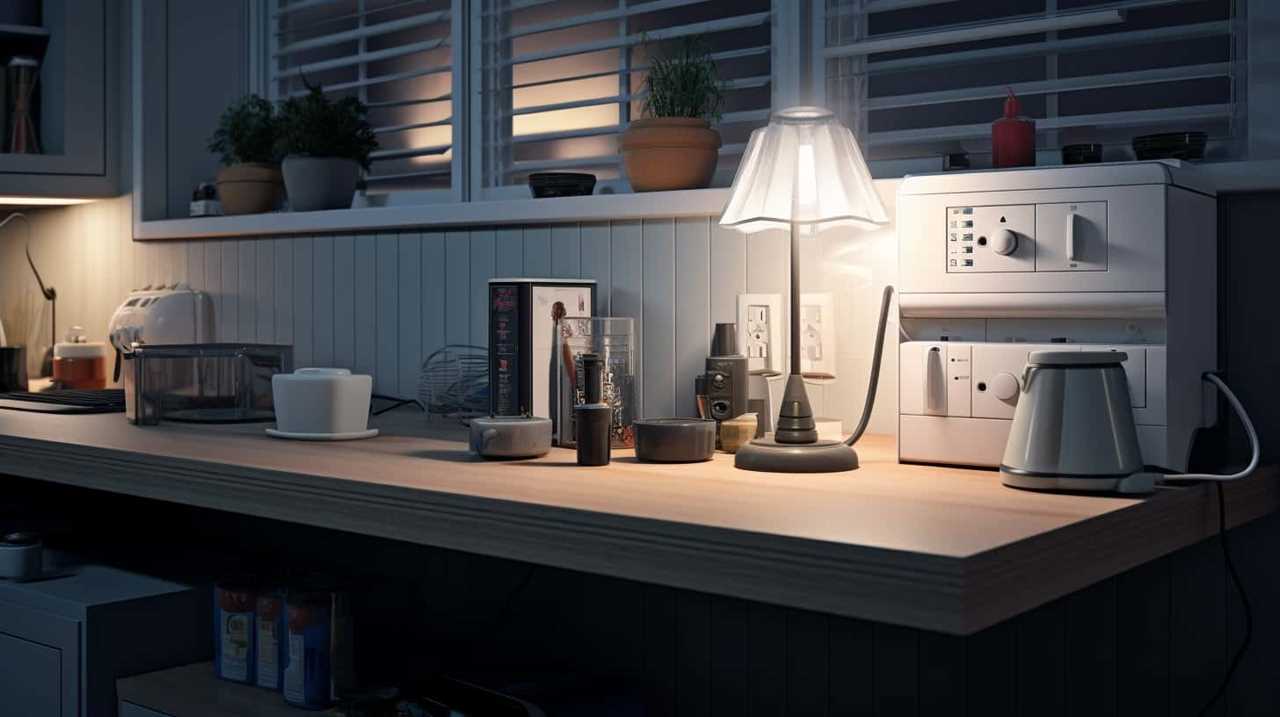
Let’s dive in and master the art of extended warranties!
Key Takeaways
- Choose a warranty provider with a good reputation and track record.
- Understand the coverage details and limitations of the warranty.
- Evaluate the cost and value of extended warranties.
- Maximize the benefits by understanding the claim process and maintaining your appliances.
Choosing the Right Warranty Provider
When selecting a warranty provider for extended commercial appliance warranties, we should consider their reputation and track record in the industry. Identifying reputable providers is crucial to ensure that we’re dealing with a company that has a history of delivering on their promises and providing excellent service to their customers. A reputable provider will have a strong presence in the market and positive reviews from satisfied clients. They’ll also have a proven track record of handling warranty claims efficiently and resolving issues promptly.
In addition to reputation, it’s important to compare warranty terms offered by different providers. We should carefully review the terms and conditions of each warranty to ensure that they meet our specific needs and requirements. This includes understanding the coverage provided, such as if it includes parts and labor costs, and the duration of the warranty. It’s also important to consider any limitations or exclusions that may apply.
Understanding Coverage and Exclusions
To fully understand the extent of coverage and any exclusions, we should carefully review the warranty terms and conditions for our extended commercial appliance warranties. Many people have common misconceptions about what’s covered under these warranties, which is why it’s so important to read the fine print. Here are some key points to consider: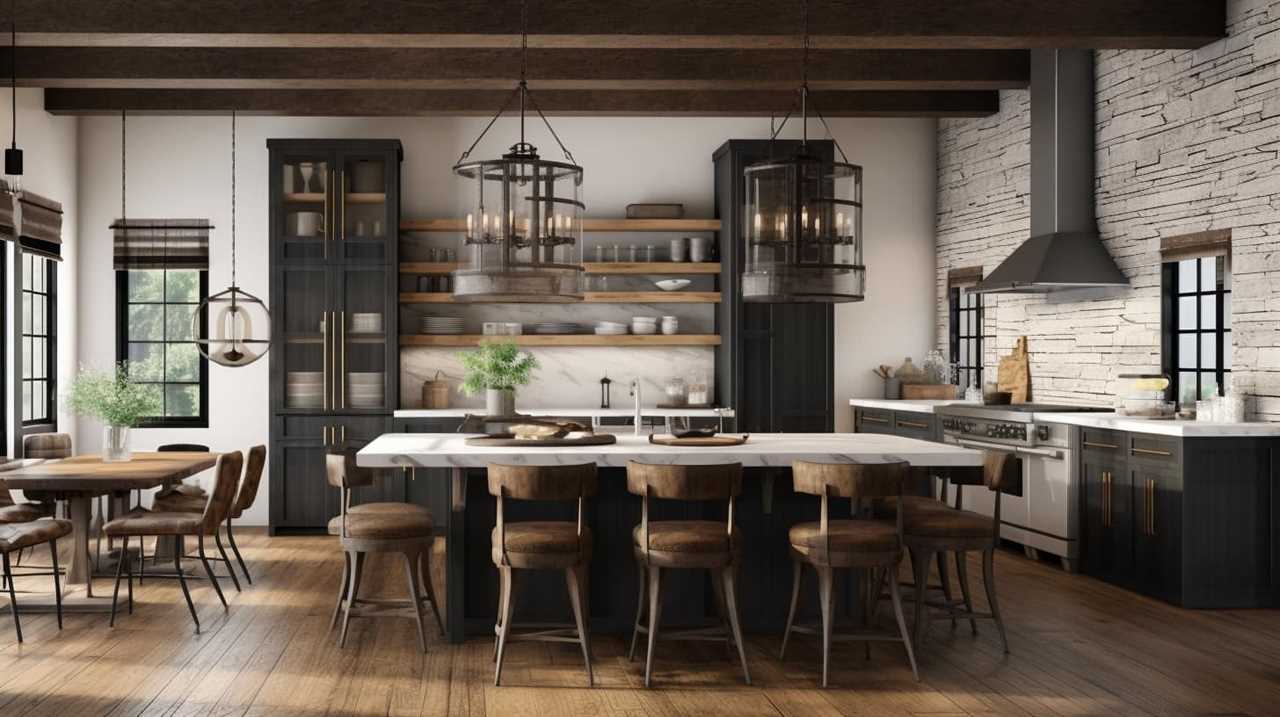
- Scope of coverage: It’s crucial to understand what types of repairs or replacements are included in the warranty. This may vary depending on the provider and the specific appliance being covered. Some warranties may only cover certain parts or components, while others may offer more comprehensive coverage.
- Exclusions: Even though warranties provide coverage, there are often exclusions stated in the terms and conditions. These exclusions may include damage caused by misuse, neglect, or unauthorized repairs. It’s important to be aware of these exclusions to avoid any surprises when filing a claim.
- Duration of coverage: Extended commercial appliance warranties can vary in terms of their duration. Some warranties may provide coverage for a fixed period of time, while others may offer coverage until a certain number of repairs or replacements have been made. Understanding the duration of coverage can help us plan for future maintenance and repairs.
- Claim process: Familiarizing ourselves with the claim process is essential. This includes knowing who to contact, what documentation is required, and any specific procedures that need to be followed to ensure a smooth and efficient claim experience.
Evaluating the Cost and Value
To determine the cost-effectiveness of extended commercial appliance warranties, we need to assess their overall value. When weighing options and considering budget considerations, it is essential to evaluate the benefits and drawbacks of purchasing extended warranties for your appliances. To help you make an informed decision, we have created a table that outlines the key factors to consider:
| Factors to Consider | Benefits | Drawbacks |
|---|---|---|
| Coverage | Extended protection beyond the manufacturer’s warranty period | Additional cost |
| Repair Costs | Potential savings on repair expenses | Warranty cost may outweigh repair costs |
| Peace of Mind | Assurance that your appliances are protected | Limited likelihood of appliance failure |
By considering these factors, you can determine whether the cost of an extended warranty is justified by its value. It is important to note that budget considerations should not be the sole determining factor. While extended warranties may come at an additional cost, they can provide peace of mind and potential savings on repair expenses.
In the next section, we will explore strategies for maximizing the benefits of extended warranties, ensuring that you get the most value out of your investment.
Maximizing the Benefits of Extended Warranties
To maximize the benefits of extended warranties, we can employ strategies that optimize our investment. By understanding the claim process and exploring renewal options, we can ensure that our commercial appliance warranties provide us with the maximum value and protection.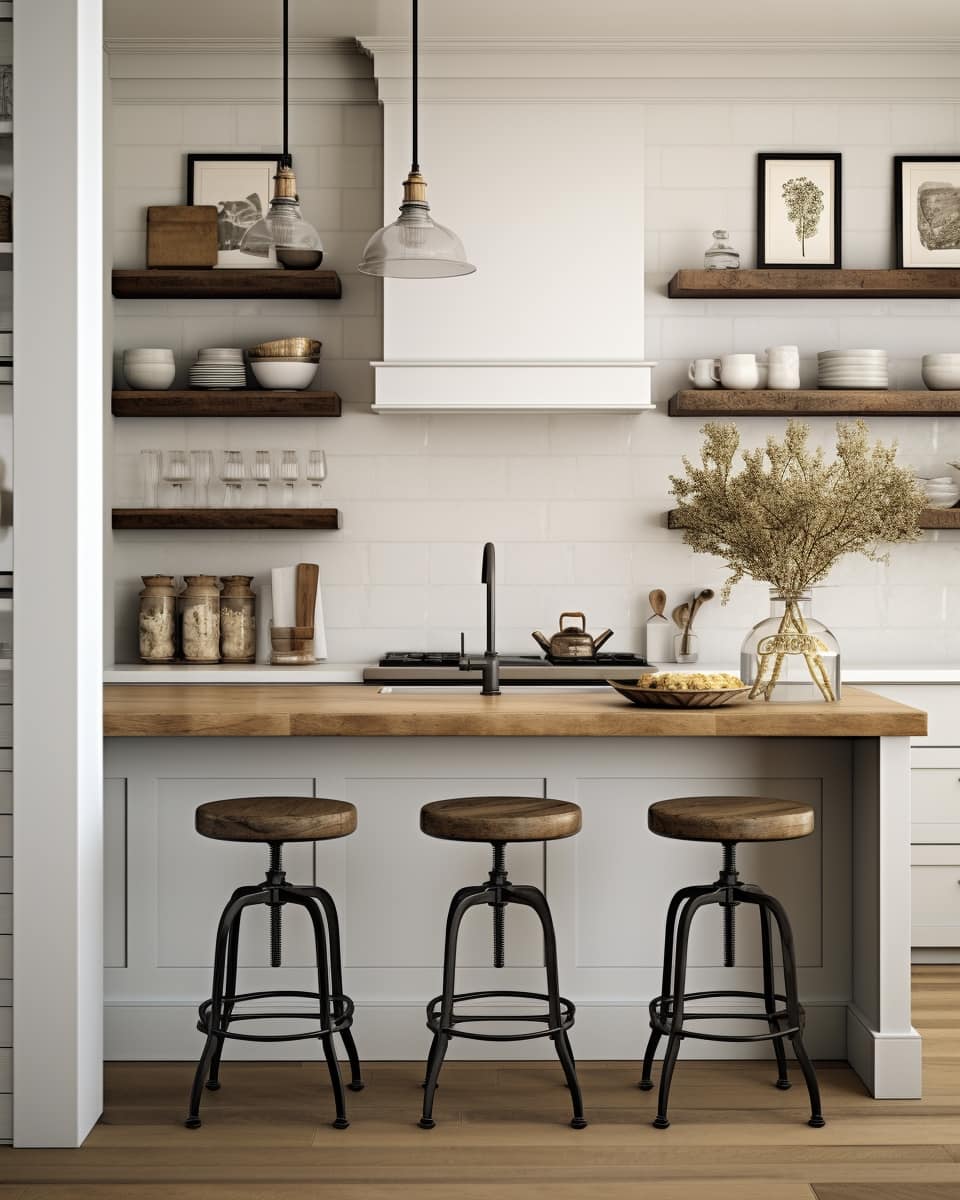
Here are some smart tips for maximizing the benefits of extended warranties:
- Thoroughly understand the claim process: Familiarize yourself with the steps involved in filing a claim. Know the required documentation, such as proof of purchase and warranty information. By being prepared, you can expedite the claim process and minimize downtime.
- Regularly maintain your appliances: Proper maintenance is crucial for the longevity and performance of your commercial appliances. Follow the manufacturer’s guidelines for cleaning, servicing, and inspections. Regular maintenance not only extends the lifespan of your appliances but also helps prevent potential issues that may require warranty claims.
- Research renewal options: When your extended warranty is about to expire, explore renewal options offered by the warranty provider. Some providers offer extended renewal plans with additional coverage, giving you continued peace of mind and protection for your investment.
- Keep warranty documents organized: Maintain a dedicated folder or digital file for all your warranty documents. This ensures easy access to necessary information when filing a claim or renewing your warranty.
Frequently Asked Questions
How Can I Extend the Warranty on My Commercial Appliance if It’s Already Expired?
To extend the warranty on your commercial appliance after it has expired, there are several renewal options available.
You can contact the manufacturer or a third-party warranty provider to inquire about their extended warranty programs. They may offer coverage plans specifically designed for appliances with expired warranty coverage.
It’s important to carefully review the terms and conditions, as well as the cost, of these extended warranty options to ensure they meet your needs and budget.
Are There Any Specific Requirements or Limitations for Obtaining an Extended Warranty for Commercial Appliances?
When obtaining an extended warranty for commercial appliances, it’s important to be aware of the common exclusions in extended warranty coverage. These may include wear and tear, cosmetic damage, and misuse or negligence.
To choose the right extended warranty, consider factors such as the length of coverage, cost, and reputation of the provider.
It’s also crucial to thoroughly read and understand the terms and conditions of the warranty to avoid any surprises down the line.
Can I Transfer My Extended Warranty to a New Owner if I Sell My Commercial Appliance?
Yes, you can transfer your extended warranty to a new owner if you sell your commercial appliance. This ensures that the warranty coverage for used appliances continues with the new owner.
It’s important to check the specific requirements and limitations of your extended warranty to ensure a smooth transfer process. By transferring the warranty, you provide peace of mind to the new owner and protect them against any unexpected repair or replacement costs.
What Happens if My Commercial Appliance Breaks Down Multiple Times During the Extended Warranty Period?
If your commercial appliance breaks down multiple times during the extended warranty period, you may be eligible for claim reimbursement. The repair or replacement timeline will depend on the terms and conditions of your warranty.
It’s important to thoroughly review the warranty agreement to understand the process and any limitations. Our team is here to help ensure that your claims are handled efficiently and that you receive the necessary repairs or replacements in a timely manner.
Is There a Limit to the Number of Claims I Can Make Under an Extended Warranty for My Commercial Appliance?
There are limitations to the number of claims we can make under an extended warranty for our commercial appliance.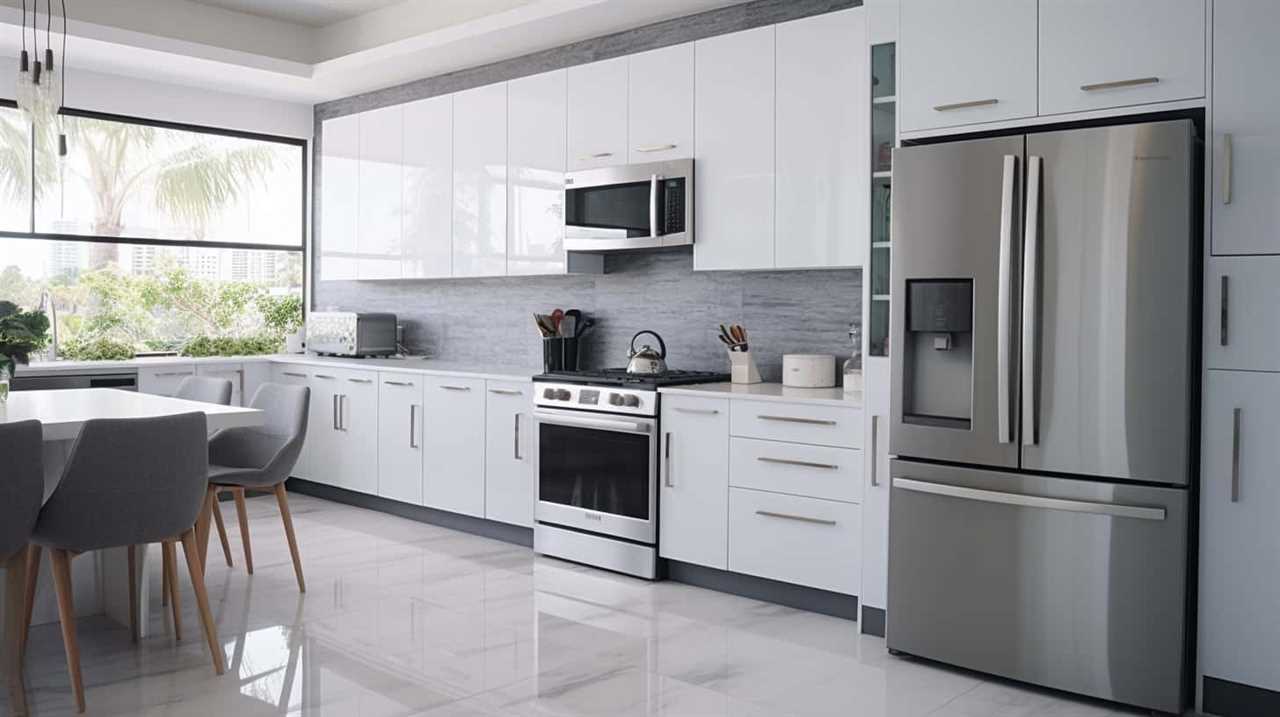
However, it’s important to note that extended warranties offer numerous benefits for commercial appliances. They provide peace of mind by covering repairs and replacements, reducing downtime and maintenance costs.
Conclusion
In conclusion, when it comes to extended commercial appliance warranties, there are several crucial considerations to keep in mind.
Firstly, choosing the right provider is essential. It’s important to research and compare different warranty providers to ensure they have a good reputation and offer comprehensive coverage.
Understanding coverage and exclusions is also crucial. Businesses should carefully review the terms and conditions of the warranty to know exactly what is covered and what is not. This will help avoid any surprises or disappointments down the line.
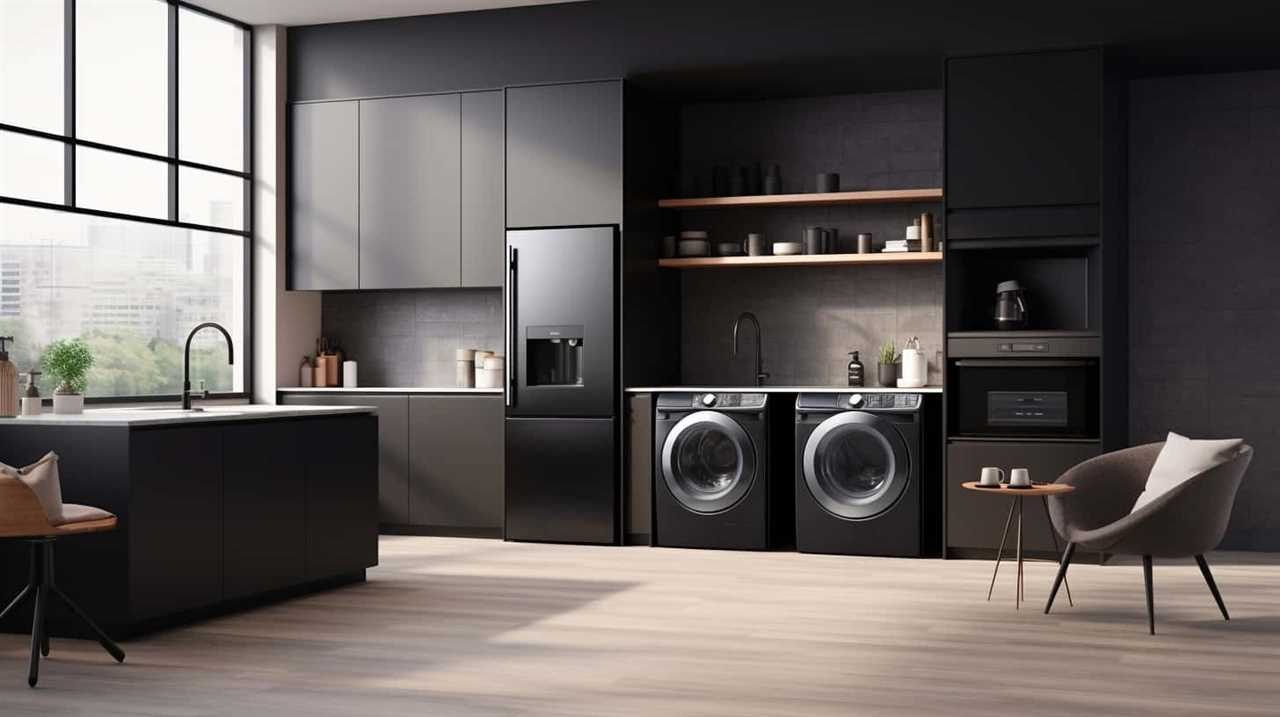
Evaluating cost and value is another important factor. Businesses should consider the cost of the warranty in relation to the potential repair or replacement costs of the appliances. They should also assess the value of the warranty by considering additional benefits such as extended service hours or priority service.
Lastly, maximizing benefits is key. Businesses should take advantage of all the benefits offered by the warranty, such as regular maintenance or discounted repairs. This will help ensure the appliances are well-maintained and any issues are addressed promptly.
By following these smart tips, businesses can make informed decisions that protect their investments. Just like a well-oiled machine, a well-chosen warranty can provide peace of mind and keep the business running smoothly. So don’t leave your appliances vulnerable, take action and secure their longevity today.
- About the Author
- Latest Posts
Introducing Charles, the Editor in Chief at ByRetreat, whose passion for interior design and editorial excellence elevates every remote workspace to new heights. With his keen eye for detail, impeccable taste, and expertise in design, Charles brings a wealth of knowledge and creativity to the ByRetreat team.
As the Editor in Chief of a renowned lifestyle blog, Charles has honed his skills in curating captivating content and staying up-to-date with the latest trends in interior design. His deep understanding of aesthetics and the power of storytelling through design enables him to create remote workspaces that are not only visually stunning but also rich in personality and meaning.
Appliances
3 Essential DIY HVAC Maintenance Tips Unveiled

Ah, the pleasures of tending to our HVAC systems! We understand the excitement of dedicating our valuable time to the upkeep and repair of these marvelous devices. But do not worry, dear reader, as we have revealed the tips to becoming skilled at DIY HVAC maintenance.
In this guide, we will unveil three essential tips that will ensure your HVAC system remains in perfect harmony. Get ready to dive into the world of air filters, thermostat settings, and outdoor condenser units. We will show you how to clean, check, and clear with ease, all while achieving that coveted mastery over your HVAC system.
So, let’s roll up our sleeves and get down to business, shall we?
Key Takeaways
- Regular maintenance, including cleaning air filters and checking thermostat settings, is essential for optimal HVAC system performance.
- Cleaning or replacing air filters prevents clogging and maintains a healthy indoor environment.
- Checking and maintaining thermostat settings ensures accurate temperature control and programming.
- Clearing debris from the outdoor condenser unit improves its performance and prevents airflow restriction.
Cleaning Air Filters Regularly
We recommend cleaning air filters regularly to ensure proper airflow and maintain optimal HVAC system performance. Replacing air filters is a crucial part of HVAC maintenance that often gets overlooked.
Air filters play a significant role in improving indoor air quality by capturing dust, pollen, and other airborne particles. Over time, these particles can accumulate on the filters, causing them to become clogged and obstructing the airflow. This can result in reduced efficiency and increased energy consumption.
By cleaning or replacing air filters on a regular basis, you can prevent these issues and maintain a healthy indoor environment.
Cleaning air filters is a relatively simple task that can be done by the homeowner. Start by turning off the HVAC system and locating the air filter. Remove the filter and inspect it for any visible dirt or debris. If the filter is washable, gently clean it with water and a mild detergent. Allow it to dry thoroughly before reinstalling. If the filter isn’t washable, it should be replaced with a new one. Remember to check the manufacturer’s recommendations for the appropriate filter type and replacement schedule.
Checking and Maintaining Thermostat Settings
To ensure optimal HVAC system performance, it’s important to regularly check and maintain the thermostat settings. The thermostat acts as the control center for your heating and cooling system, allowing you to adjust the temperature and program a schedule that suits your needs.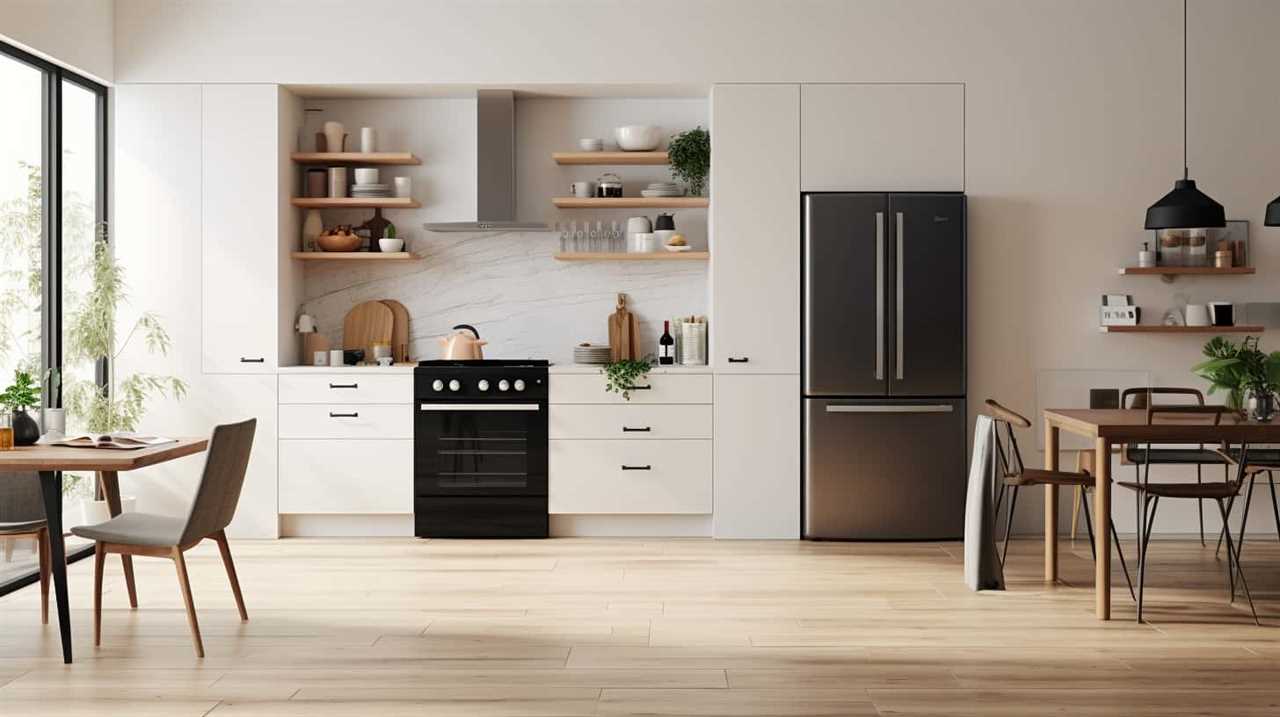
Start by adjusting the temperature settings to the desired level. This can be done manually or through programming. If you prefer a consistent temperature throughout the day, programming a schedule can help save energy and maintain comfort. Make sure to set different temperatures for when you’re away from home or asleep.
Regularly check the accuracy of your thermostat by comparing it to a separate thermometer. If there’s a discrepancy, recalibrate the thermostat to ensure accurate readings.
Keep the thermostat clean and free from dust and debris. Use a soft cloth to wipe away any buildup that may affect its functionality.
Lastly, check the batteries in your thermostat. Dead or low batteries can cause the thermostat to malfunction. Replace them as needed to ensure proper operation.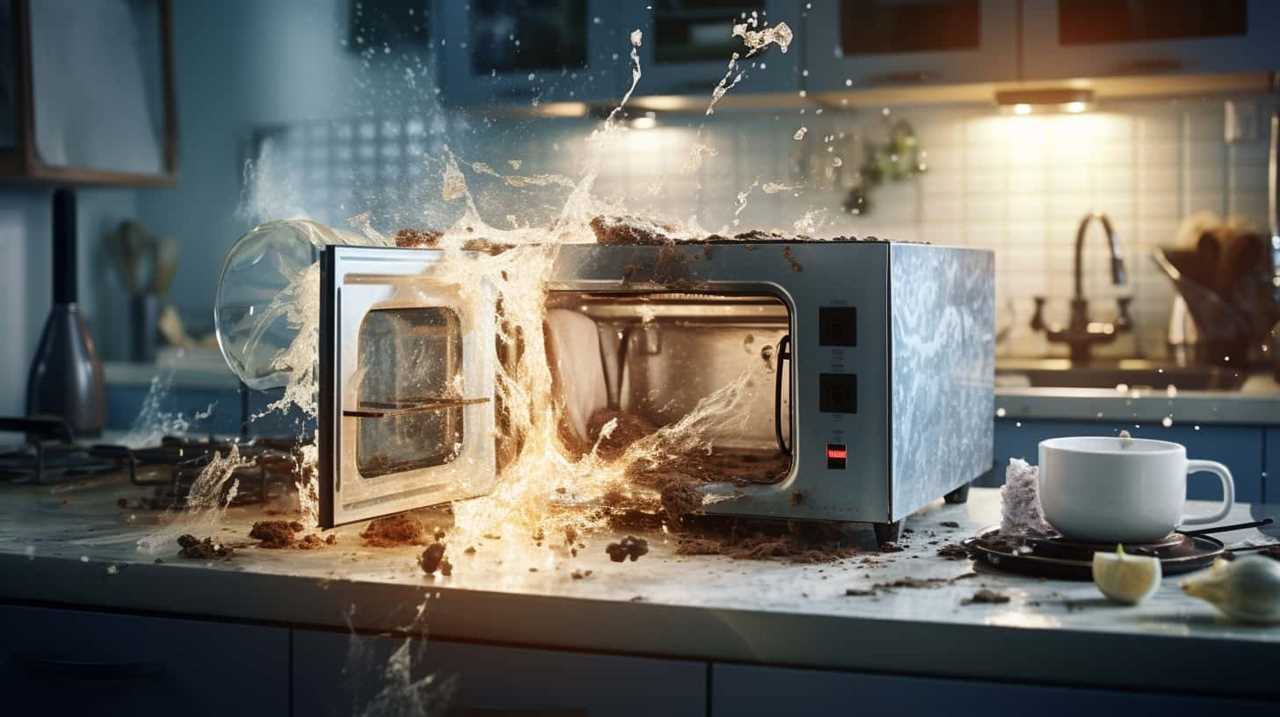
Clearing Debris From Outdoor Condenser Unit
Clearing debris from the outdoor condenser unit involves removing any dirt, leaves, and other obstructions that can hinder its performance. It’s important to regularly inspect and clean the condenser coil to ensure optimal functioning of the HVAC system.
To begin, it’s crucial to remove any vegetation that may have grown around the outdoor condenser unit. Plants, shrubs, or trees that are too close to the unit can restrict airflow and reduce its efficiency. Cut back any overhanging branches or foliage that may block the airflow and impede the unit’s ability to cool the air effectively.
Next, inspect the condenser coil for any debris buildup. Over time, dirt, leaves, and other particles can accumulate on the coil, obstructing the airflow and reducing its heat transfer capabilities. Gently brush away any debris using a soft-bristle brush or a vacuum cleaner with a brush attachment. Be careful not to damage the delicate fins of the coil during the cleaning process.
In addition to removing debris, it’s essential to inspect the coil for any signs of damage or corrosion. If any bent fins are detected, use a fin comb to straighten them out carefully. If there’s significant damage or corrosion, it’s recommended to contact a professional HVAC technician for further assessment and repair.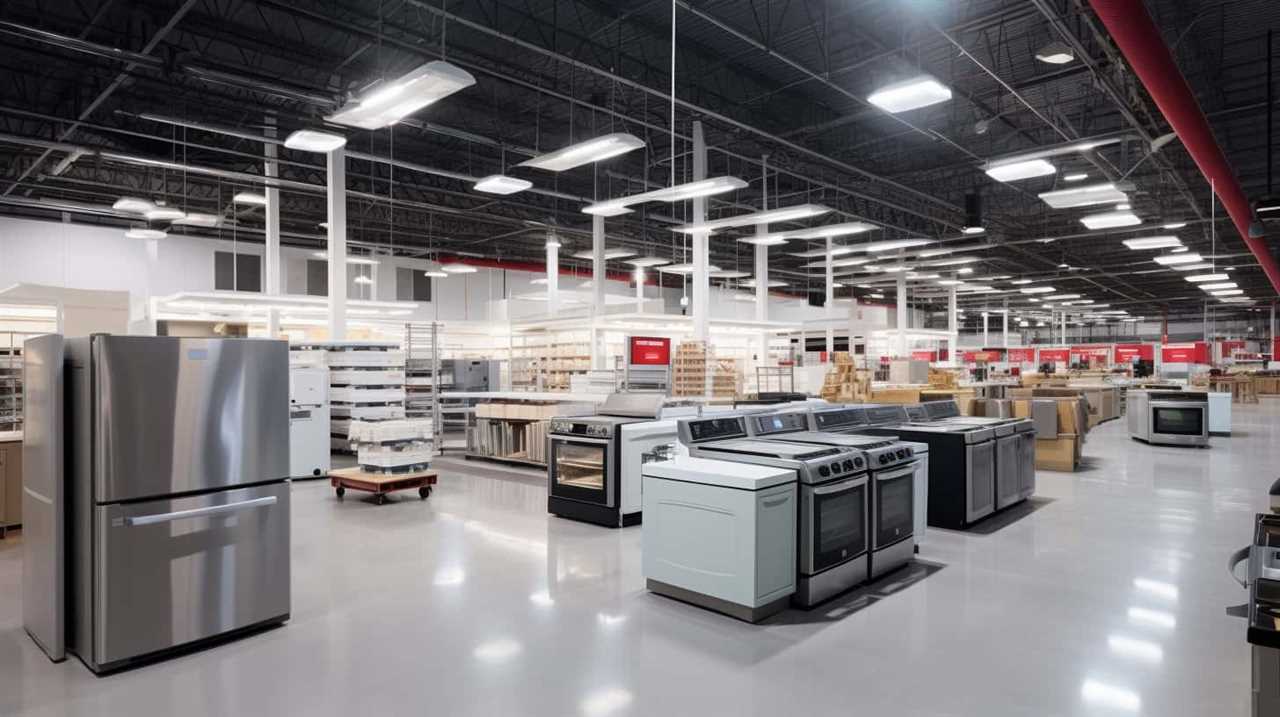
Regularly clearing debris and maintaining the condenser coil will help ensure that the outdoor unit operates efficiently and prolong its lifespan. By following these simple steps, you can optimize the performance of your HVAC system and maintain a comfortable indoor environment.
Frequently Asked Questions
How Often Should I Clean or Replace My Air Filters?
To improve the air quality in our homes, it’s essential to clean or replace air filters regularly. So, how often should we clean or replace them?
It’s recommended to clean or replace air filters every 1 to 3 months, depending on factors like the type of filter, the level of pollutants, and the frequency of HVAC system usage. Regular maintenance ensures that the air flowing through our HVAC system is clean and healthy, promoting a comfortable and safe living environment.
Can I Use Any Type of Air Filter for My HVAC System?
Can we use any type of air filter for our HVAC system?

It’s important to understand that not all air filters are created equal. There are different types of air filters available in the market, each with its own specifications and benefits.
Using the right filter for your HVAC system is crucial in ensuring optimal performance and indoor air quality. It’s recommended to consult with a professional to determine the best filter for your specific system and needs.
Are There Any Specific Thermostat Settings I Should Be Aware of During Different Seasons?
During different seasons, it’s important to adjust thermostat programming to maximize energy efficiency. By setting higher temperatures in the summer and lower temperatures in the winter, you can reduce the workload on your HVAC system and save on energy costs.
Additionally, utilizing programmable thermostats can help automate these adjustments, ensuring optimal comfort and efficiency.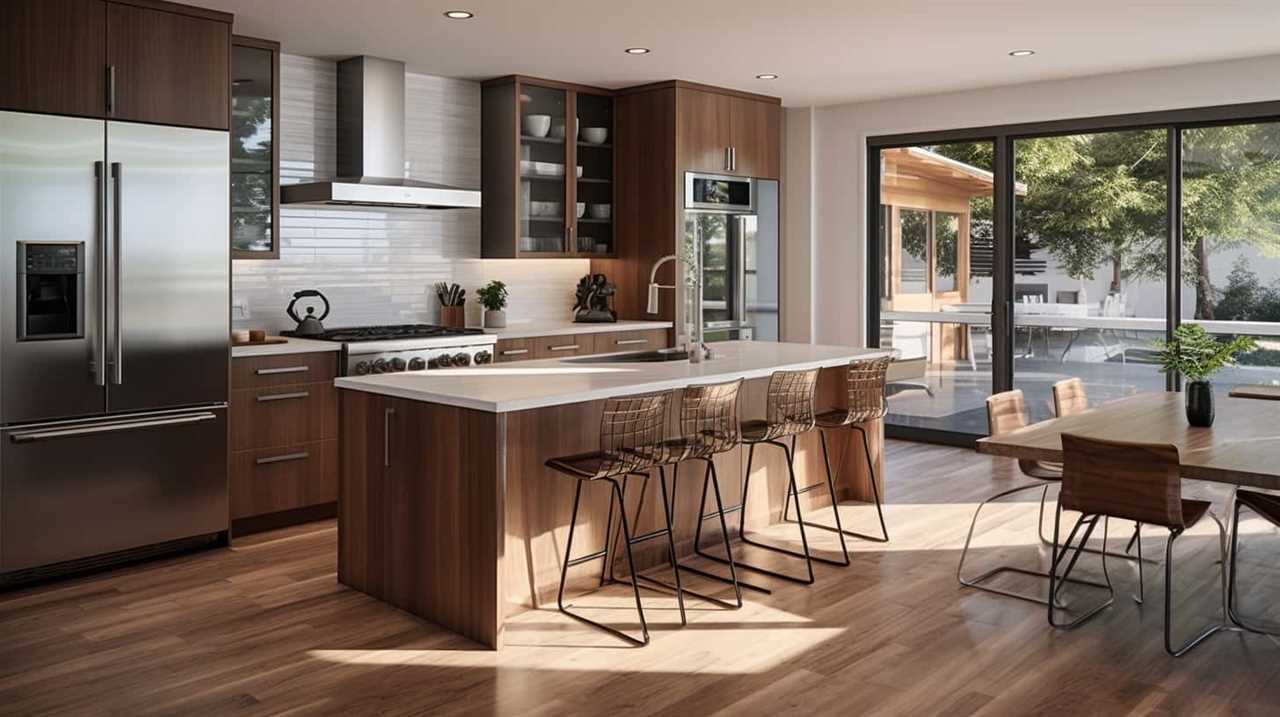
How Can I Determine if the Outdoor Condenser Unit Is Blocked by Debris?
To determine if the outdoor condenser unit is blocked by debris, we can look for certain signs.
One key indicator is reduced airflow coming from the unit. If you notice that the air isn’t flowing as strongly as before, it could be a sign of blockage.
Another sign to watch out for is unusual noises coming from the condenser, which could indicate damage.
Regularly inspecting and cleaning the unit will help prevent any potential issues and ensure optimal performance.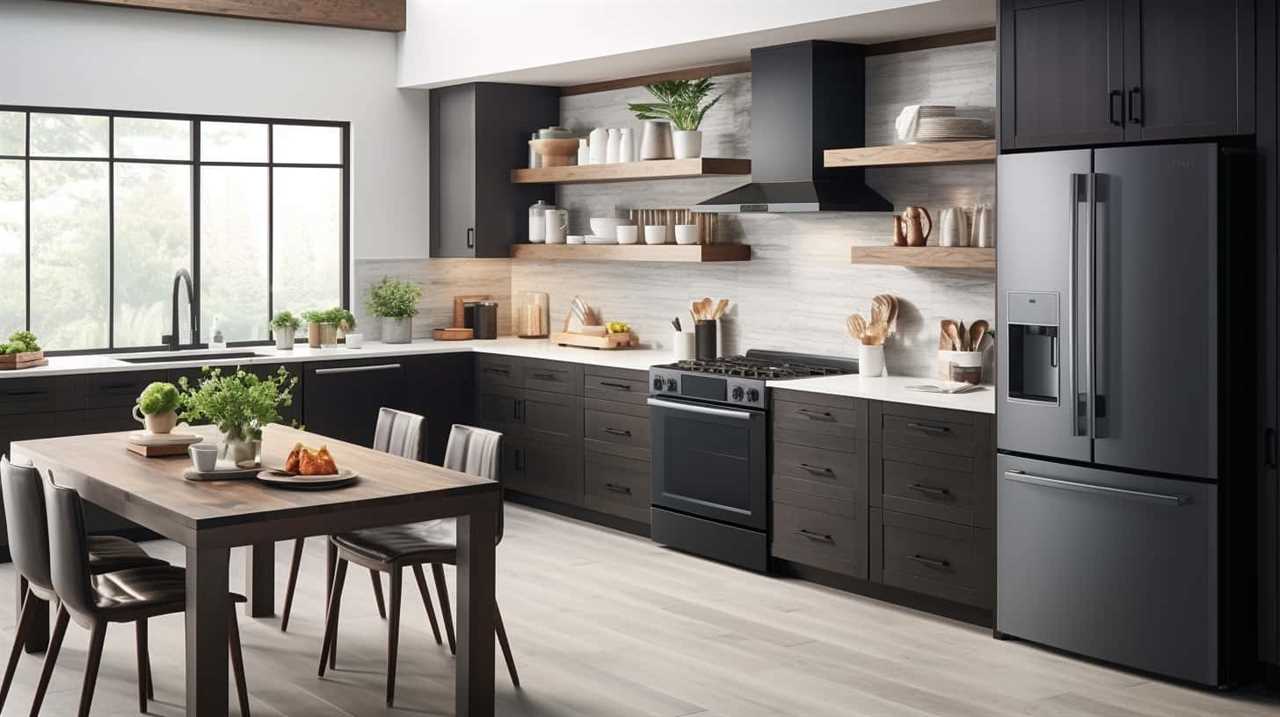
What Are the Potential Consequences of Not Regularly Cleaning the Air Filters or Clearing Debris From the Outdoor Condenser Unit?
Neglecting HVAC maintenance can lead to serious consequences. Regularly cleaning air filters and clearing debris from the outdoor condenser unit is of utmost importance. Failure to do so can result in reduced airflow, decreased efficiency, and higher energy bills.
Additionally, dirty filters can lead to poor indoor air quality and potential health issues. By prioritizing regular HVAC maintenance, we ensure optimal performance, extend the lifespan of our system, and create a healthier and more comfortable living environment.
Conclusion
In conclusion, by regularly cleaning air filters, checking and maintaining thermostat settings, and clearing debris from the outdoor condenser unit, homeowners can ensure optimal performance and efficiency of their HVAC systems.
These essential DIY maintenance tips not only extend the lifespan of the system but also improve indoor air quality and reduce energy consumption.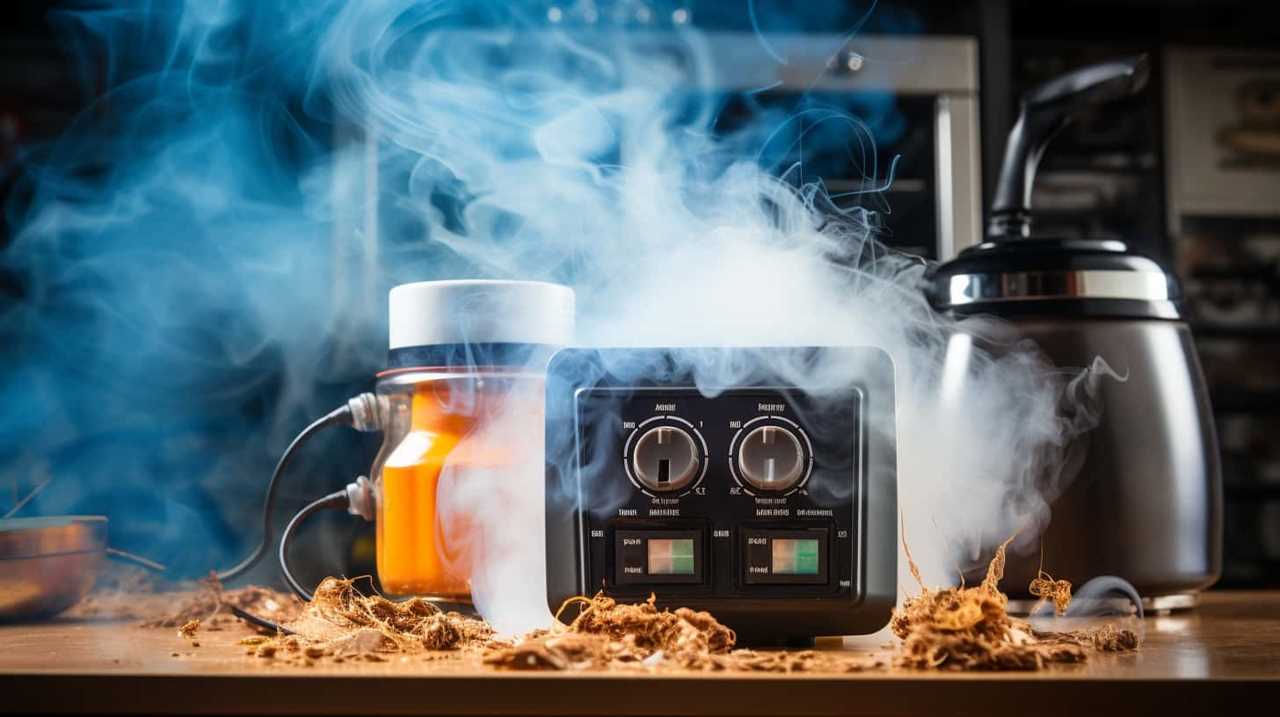
By taking these simple steps, homeowners can enjoy a comfortable and healthy living environment while saving on utility bills.
- About the Author
- Latest Posts
Introducing Charles, the Editor in Chief at ByRetreat, whose passion for interior design and editorial excellence elevates every remote workspace to new heights. With his keen eye for detail, impeccable taste, and expertise in design, Charles brings a wealth of knowledge and creativity to the ByRetreat team.
As the Editor in Chief of a renowned lifestyle blog, Charles has honed his skills in curating captivating content and staying up-to-date with the latest trends in interior design. His deep understanding of aesthetics and the power of storytelling through design enables him to create remote workspaces that are not only visually stunning but also rich in personality and meaning.
-

 Vetted2 days ago
Vetted2 days ago15 Best Folding Beds for Small Spaces – Space-Saving Solutions for Comfort and Convenience
-

 Vetted16 hours ago
Vetted16 hours ago15 Best Waterproof Flooring Options for Your Bathroom – Ultimate Guide & Reviews
-

 Vetted6 days ago
Vetted6 days ago15 Best Grocery Carts to Make Shopping a Breeze
-
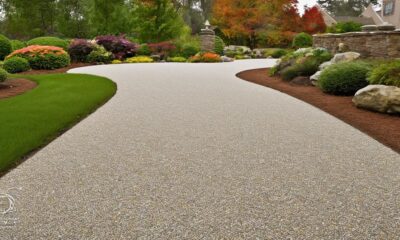
 Vetted2 weeks ago
Vetted2 weeks ago15 Best Gravel for Driveway: The Ultimate Guide for a Durable and Stunning Entrance
-

 Vetted4 days ago
Vetted4 days ago15 Best Steam Generators for Showering Bliss: Reviewed & Rated
-

 Beginners Guides3 weeks ago
Beginners Guides3 weeks agoI Inhaled Vinegar Fumes
-

 Vetted2 weeks ago
Vetted2 weeks ago15 Best Hot Tubs of 2024: Luxurious Relaxation at Your Fingertips
-

 Vetted4 weeks ago
Vetted4 weeks ago15 Best Blinds for Bathroom Windows to Enhance Privacy and Style


















